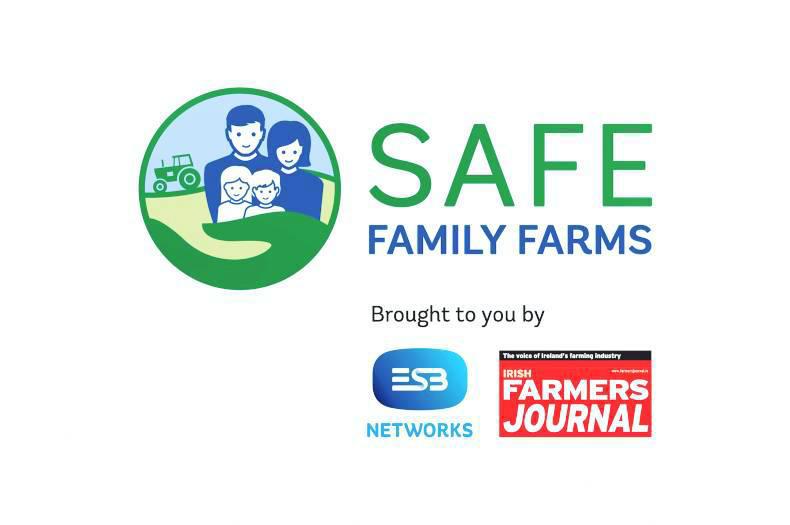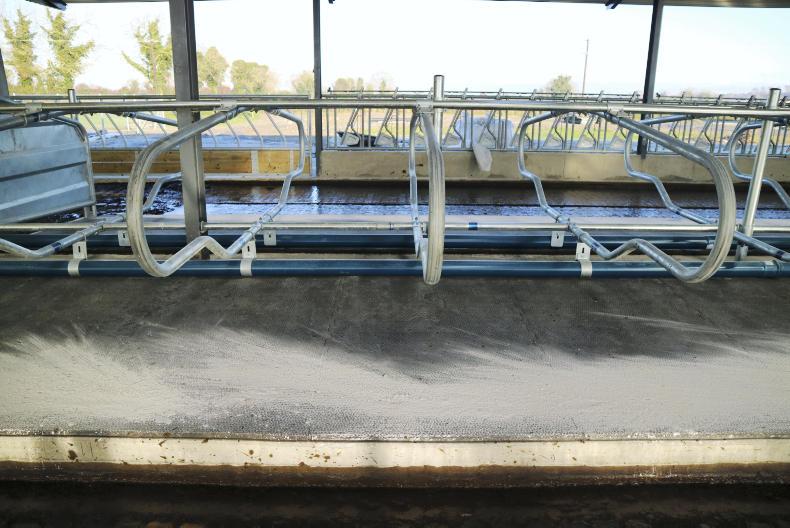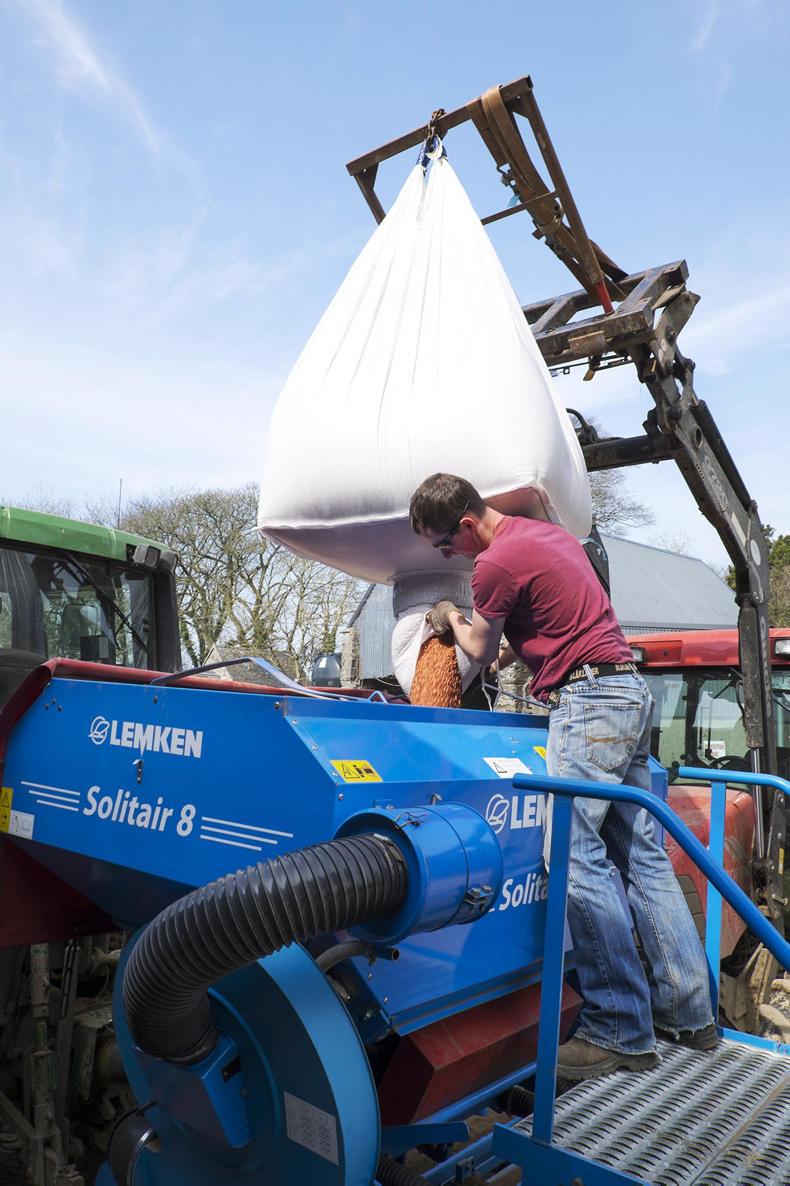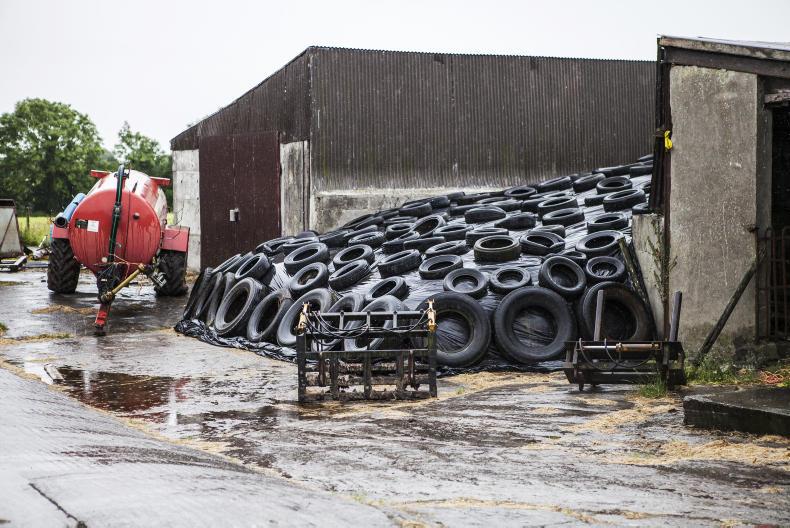1. Silage pits and bales
Whatever the height of your pit, watch out for the risk of falling off it when opening it for the first time. Silage plastic can be very slippery when wet and throwing tyres can easily knock you off balance with deadly consequences.
Where possible, shove the tyres off with a fork or brush and gather up afterwards with the tractor grab or bucket.
The biggest risk is under the plastic, where silage may collapse. Stepping on this will land you on to hard concrete with devastating consequences or life-altering injuries.
The same applies with silage bales especially when they are in the raised position on the front loader.
Never walk under a raised loader and cut open the plastic on the bale while it is resting on the ground. Even a piece of a silage bale falling on you and pinning you to the ground will have damaging consequences.
2. Walking among cattle
Most cattle are docile creatures and shy away from human interaction. Some unfortunately can be temperamental so don’t get cornered in a cubicle house or shed by a defensive cow who is trying to protect her calf.

Ideally, have an escape route in your head, be it under a gate or over a wall. Just think of the damage an attack from an angry cow could do.
If you must treat or tag a calf, try to do this with the cow in a separate pen. Where possible, bring someone with you to watch your back.
3. Liming cubicles
Liming cubicles sounds like a straightforward and simple job but done wrongly can cause personal damage. Any type of cubicle lime can be damaging to your health so wear a pair of safety goggles and a face mask when spreading it to avoid getting into your eyes and inhaling it.

Milking gloves are great at protecting your hands and help avoid getting the lime on your skin. Use a scoop or a handheld sieve to lime the cubicles.
This not only protects your hands but also gives a more even spread of material than broadcasting by hand.
4. Trees and power lines
We covered this recently but the message stays the same – assess the environment you are about to go into before you start the chainsaw. There are a lot of trees felled after the recent storms so take just a few minutes to identify the potential risks.
A broken branch resting on another tree or a branch falling on to a live power line could have deadly consequences.
Always keep a safe distance and never carry out tree-cutting work where the tree or branches or any tools can come within 3m of any power lines or poles.

When tree felling, a safe distance is the height of the tree plus 3m. If you notice any leaning or damaged ESB poles or are concerned about an electric power line on your land, contact the ESB on 1850-372 999.
If a tree must be felled near power lines, the ESB will be more than happy to accommodate you and can switch off the line or even drop it if required.
5. Bulk feed and seed bags
Some farmers buy feed and seed in bulk bags. When raising them over a feeder or seed drill to open the underside, try to spend as little time as possible underneath and reach in from the side if they are to be untied to release the contents.
In most instances, the bag will not be reused so cut the side of the bag first to reduce the risk of it causing personal damage if it falls on you.

When the majority of the bag has emptied, the remaining material in the bag can be tipped out easily by hand.
Again, like the silage bales avoid walking or standing under front loaders and work from the side of the bag that is being emptied.
Read more
Here are more ESB Safe Family Farms tips
1. Silage pits and bales
Whatever the height of your pit, watch out for the risk of falling off it when opening it for the first time. Silage plastic can be very slippery when wet and throwing tyres can easily knock you off balance with deadly consequences.
Where possible, shove the tyres off with a fork or brush and gather up afterwards with the tractor grab or bucket.
The biggest risk is under the plastic, where silage may collapse. Stepping on this will land you on to hard concrete with devastating consequences or life-altering injuries.
The same applies with silage bales especially when they are in the raised position on the front loader.
Never walk under a raised loader and cut open the plastic on the bale while it is resting on the ground. Even a piece of a silage bale falling on you and pinning you to the ground will have damaging consequences.
2. Walking among cattle
Most cattle are docile creatures and shy away from human interaction. Some unfortunately can be temperamental so don’t get cornered in a cubicle house or shed by a defensive cow who is trying to protect her calf.

Ideally, have an escape route in your head, be it under a gate or over a wall. Just think of the damage an attack from an angry cow could do.
If you must treat or tag a calf, try to do this with the cow in a separate pen. Where possible, bring someone with you to watch your back.
3. Liming cubicles
Liming cubicles sounds like a straightforward and simple job but done wrongly can cause personal damage. Any type of cubicle lime can be damaging to your health so wear a pair of safety goggles and a face mask when spreading it to avoid getting into your eyes and inhaling it.

Milking gloves are great at protecting your hands and help avoid getting the lime on your skin. Use a scoop or a handheld sieve to lime the cubicles.
This not only protects your hands but also gives a more even spread of material than broadcasting by hand.
4. Trees and power lines
We covered this recently but the message stays the same – assess the environment you are about to go into before you start the chainsaw. There are a lot of trees felled after the recent storms so take just a few minutes to identify the potential risks.
A broken branch resting on another tree or a branch falling on to a live power line could have deadly consequences.
Always keep a safe distance and never carry out tree-cutting work where the tree or branches or any tools can come within 3m of any power lines or poles.

When tree felling, a safe distance is the height of the tree plus 3m. If you notice any leaning or damaged ESB poles or are concerned about an electric power line on your land, contact the ESB on 1850-372 999.
If a tree must be felled near power lines, the ESB will be more than happy to accommodate you and can switch off the line or even drop it if required.
5. Bulk feed and seed bags
Some farmers buy feed and seed in bulk bags. When raising them over a feeder or seed drill to open the underside, try to spend as little time as possible underneath and reach in from the side if they are to be untied to release the contents.
In most instances, the bag will not be reused so cut the side of the bag first to reduce the risk of it causing personal damage if it falls on you.

When the majority of the bag has emptied, the remaining material in the bag can be tipped out easily by hand.
Again, like the silage bales avoid walking or standing under front loaders and work from the side of the bag that is being emptied.
Read more
Here are more ESB Safe Family Farms tips











 This is a subscriber-only article
This is a subscriber-only article



















SHARING OPTIONS: